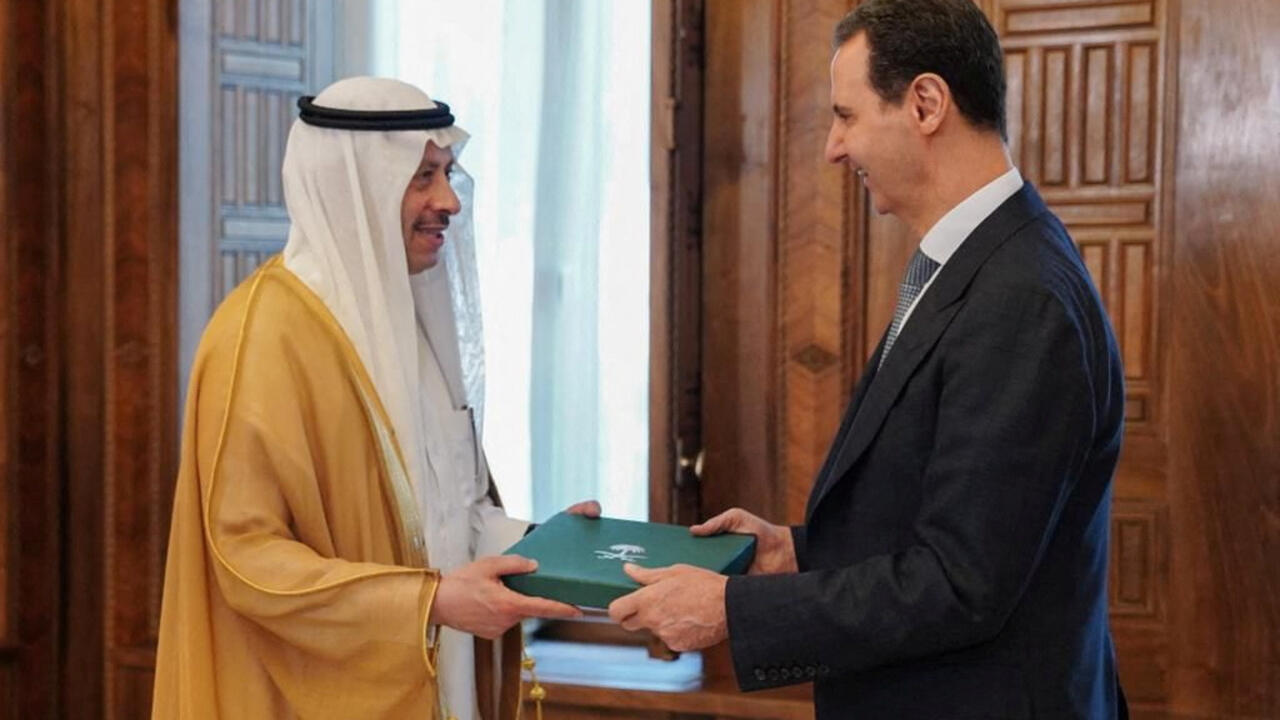Syria's return to the Arab League should not change the country's economic situation
Syrian President Bashar al-Assad received an invitation from the King of Saudi Arabia on May 10 through the Saudi ambassador to Jordan for Friday's Arab League summit. REUTERS - EMBASSY OF SAUDI ARABIA IN JORDA
Text by: RFI Follow
3 min
Syrian officials attended an Arab League meeting on Monday (May 15th) for the first time since the pan-Arab organization suspended President Bashar al-Assad's regime in November 2011 due to a violent crackdown on protests that have escalated into a conflict that has left more than 500,000 dead and millions displaced.
Advertising
Read more
This is the end of more than a decade of diplomatic isolation. Syrian officials participated Monday (May 15th) in Saudi Arabia in a preparatory meeting for Friday's Arab League summit marked by Syria's reintegration since May 7, twelve years after being excluded. "This is a new opportunity for us to tell our Arab brothers that we are not looking to the past but to the future," Syrian Foreign Minister Faisal Mekdad said shortly after arriving in Jeddah on Monday night. "We have many challenges to face, including the Arab-Israeli conflict," he added, quoted by Syria's official SANA news agency.
Collapsed financial system, lack of manpower
It was about economics. No official communiqué, but a declaration of intent from Saudi Arabia to contribute to economic development in the region. Syrian Economy Minister Mohammad Samer al-Khalil called on Arab countries to invest in Syria because of "promising opportunities and new investment-friendly laws," according to SANA. Does this mean that the Gulf monarchies could invest in Syria, in an economically exhausted country?
We are still very far from that, says Joseph Daher, professor at the University of Lausanne. "In the current framework, a return of the Syrian regime to the League of Arab States does not mean an improvement in the economic situation in Syria and foreign investment in the short term, especially from the Gulf monarchies," he said. The Gulf monarchies have as a priority today to focus on their own economic reforms, but there are also international sanctions, particularly American ones. A number of companies do not want to have to deal with everything related to Syria. So, for now, there are a number of obstacles, not to mention Syria's economic difficulties: a collapsed financial system, a general lack of manpower. All these reasons mean that today, Syria does not represent an Eldorado to invest economically tomorrow.
»Reluctance
Riyadh, which cut ties with the Syrian government in 2012, confirmed the resumption of work in diplomatic missions in Syria and Saudi Arabia. However, some countries have been reluctant to renew ties with Bashar al-Assad, including Qatar, which has indicated that it will not normalize relations with him.
Arab heads of state are holding their summit on Friday, May 19, in the Saudi city of Jeddah. Invited by Crown Prince Mohammed bin Salman, Syria will participate for the first time since 2010. In addition, the Emirati chargé d'affaires in Syria, Abdel Hakim Al-Nouaimi, "handed over an official invitation" Sunday from Emirati President Mohammed bin Zayed Al Nahyan to his Syrian counterpart to "attend COP 28", announced the Syrian agency Sana. This is the first time Assad has been invited to an international summit - which is expected to be attended by several Western heads of state - since the start of the war in Syria in 2011.
>> READ ALSO: Reintegration of Syria into the Arab League: "It is a humiliation for the Syrian people"
Newsletter Receive all the international news directly in your mailbox
I subscribe
Follow all the international news by downloading the RFI application
Read on on the same topics:
- Syria
- Arab League
- Bashar al-Assad
- Saudi Arabia
- Diplomacy
- Economy
On the same subject
Maintenance
Syria's reintegration into the Arab League: 'One cannot help but express a sense of betrayal'
Syria's reintegration into the Arab League a victory for Saudi Arabia
The Arab League returns to the Syrian regime after eleven years of absence

